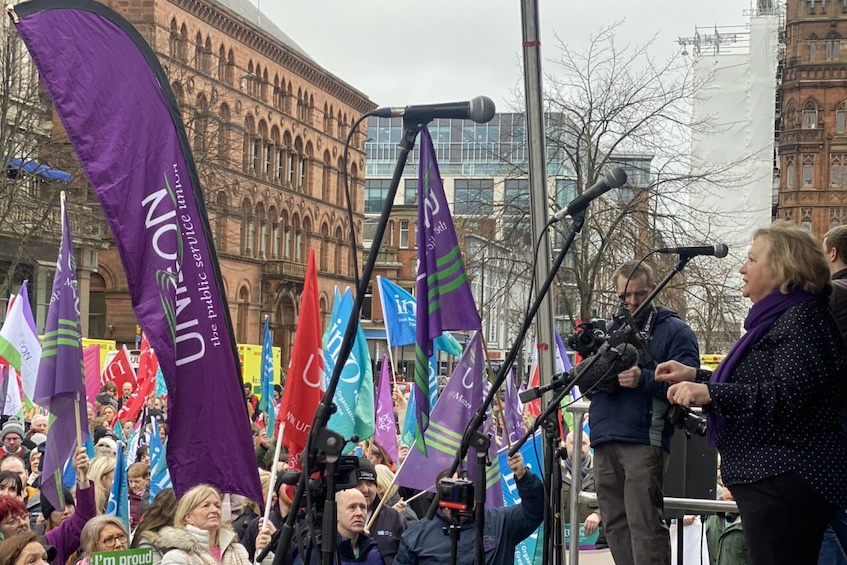NHS staff in Northern Ireland accept 5% deal

After months of industrial action, NHS workers in Northern Ireland have accepted a 5% pay offer for last year negotiated by health unions and the Department of Health. Negotiations had been stalled for months due to the breakdown of the power-sharing Northern Ireland Executive, which finally returned to office in February.
As well as a 5% consolidated pay rise for all Agenda for Change staff, the offer includes a one-off payment of £1,505 for all staff regardless of grade. The pay award, which will be backdated to April 2023, brings health workers’ salaries in Northern Ireland into line with those in England. In a consultative ballot, MiP and UNISON members in Northern voted 77% in favour of the deal.
Jamie Briers, MiP’s national officer for Northern Ireland, said the “long-overdue” offer showed “staff that their efforts throughout this extremely challenging period have been recognised”. Maintaining pay parity with staff in England would “be welcomed throughout the workforce”, he added.
Briers said MiP “appreciated” that the flat-rate lump sum offered to members was designed to help lower-paid staff, but said members would be “disappointed” that, at £1,505, the one-off payment was lower than those offered to staff in England, Wales and Scotland.
Despite Agenda for Change staff being due a further pay award from 1 April, as in the rest of the UK, negotiations for the 2024–25 pay round have yet to begin in Northern Ireland.
Related News
-

MiP responds to the abolition of NHS England
Government risk repeating same mistakes as Lansley by abolishing NHS England and cutting more staff from ICBs, says MiP.
-

NHS England and central staff could be cut by 50%, NHSE has announced
Government planned cuts at NHS England go much further than previously announced, with up to 50% of staff at risk.
-

New MiP survey shows growing support for principle of regulating managers, but warns it won’t improve patient safety
MiP’s member survey on regulating NHS managers shows managers are still not convinced regulation will improve patient safety or raise standards, despite growing support for it in principle.